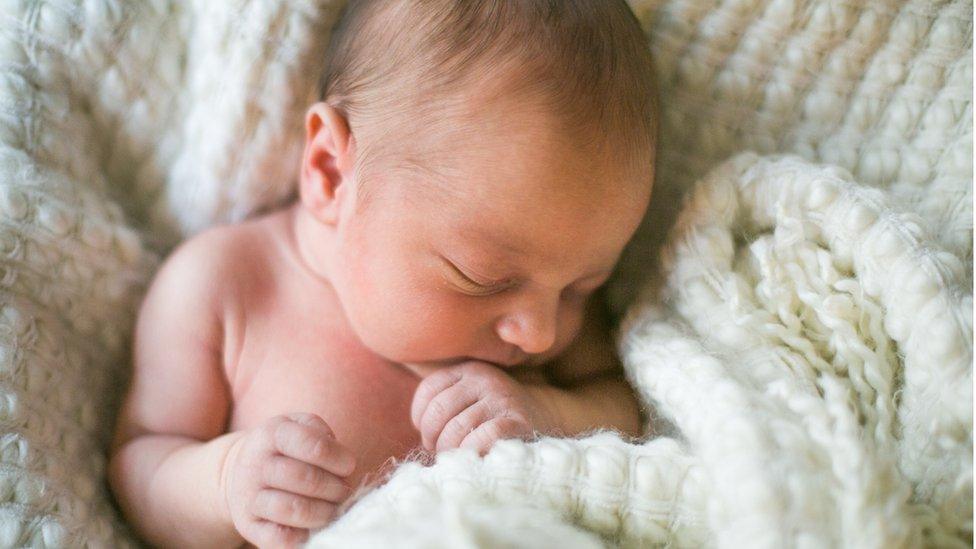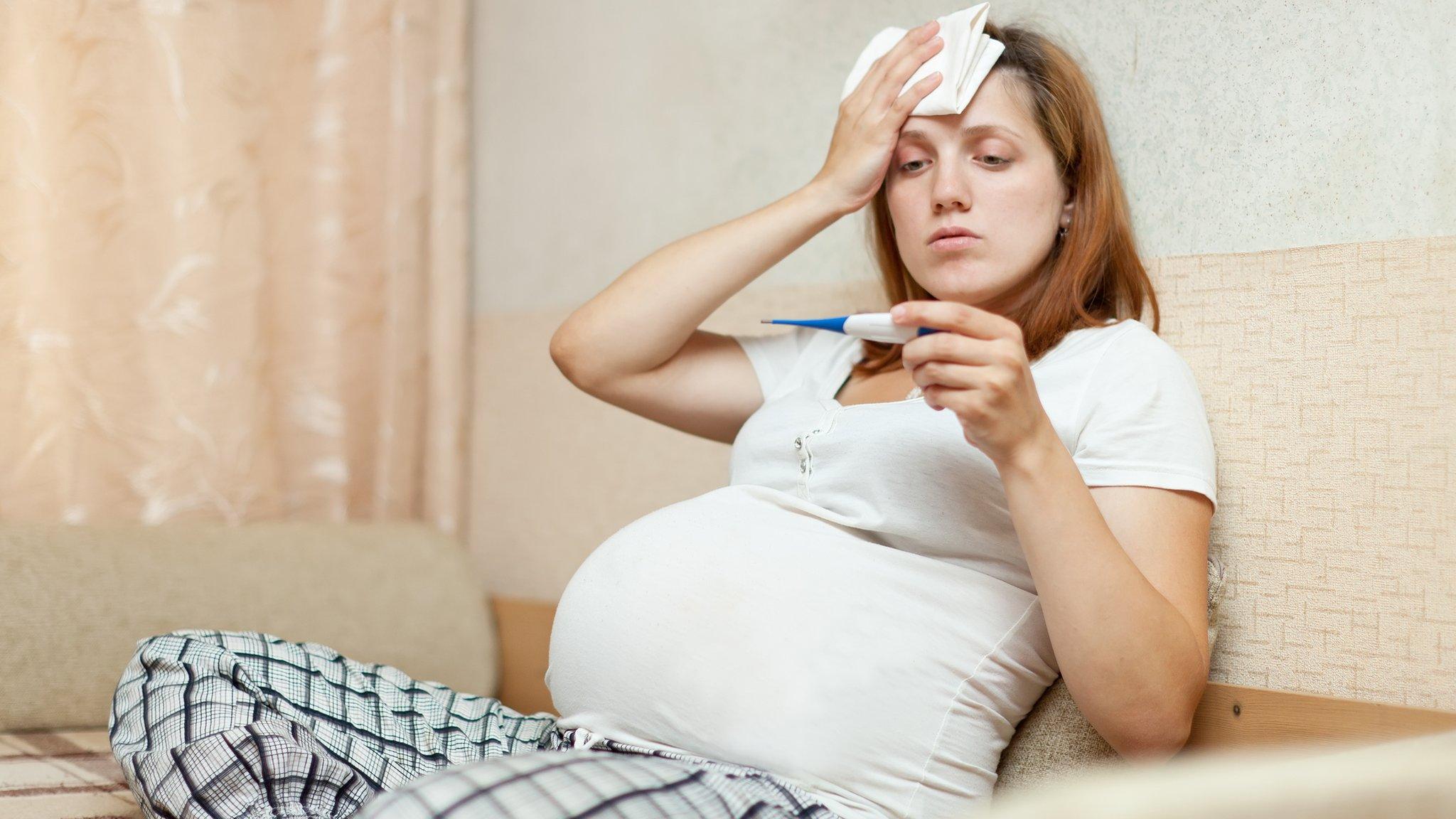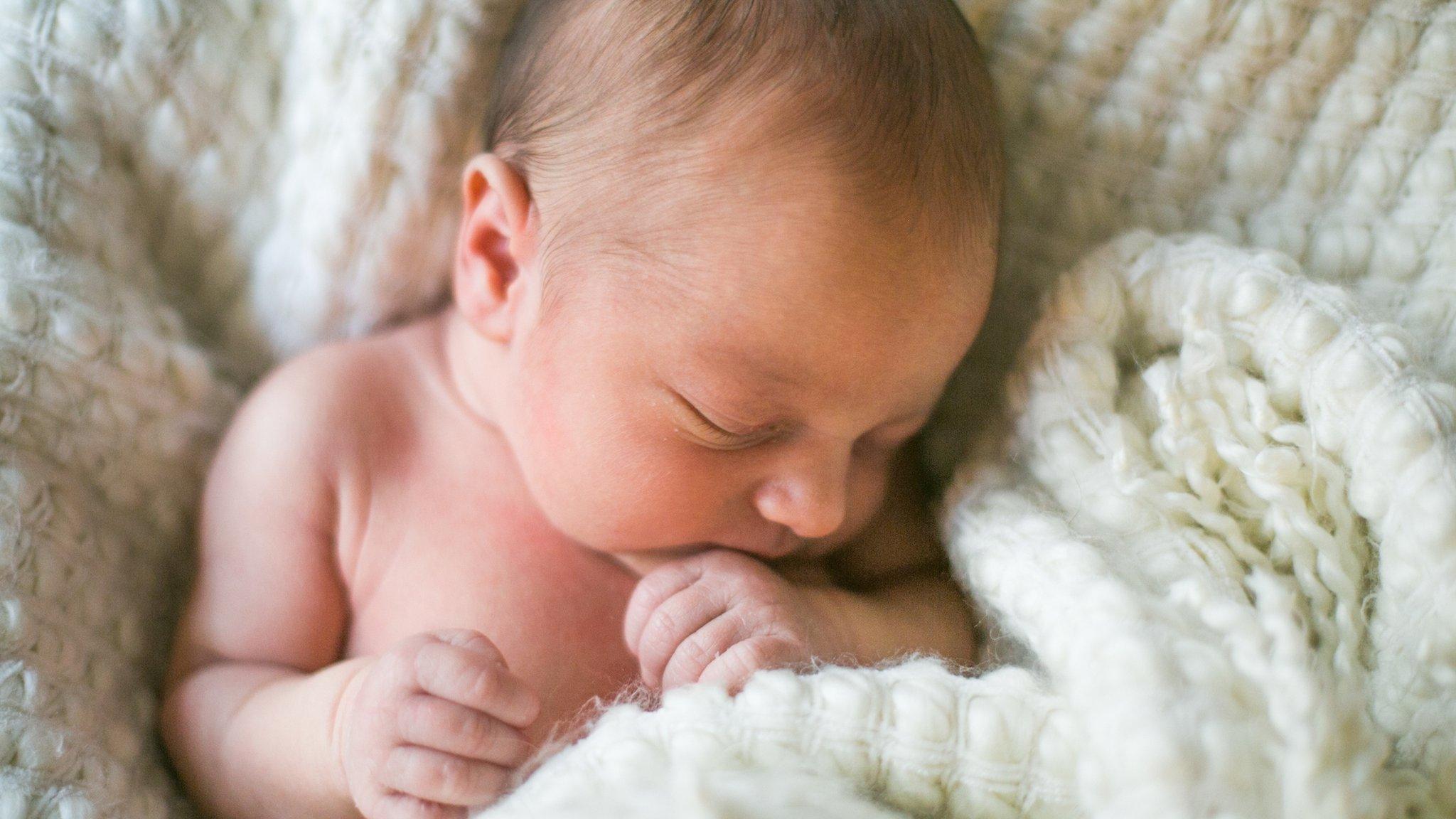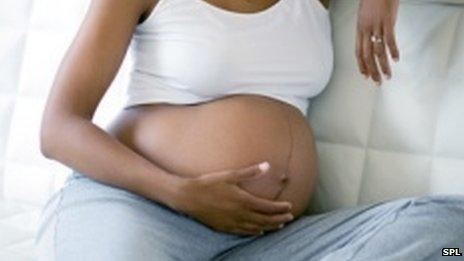NHS midwife shortage warning as many near retirement
- Published

Wales could face a midwife shortage as many head towards retirement and more babies are born, a report has warned.
About 35% of midwives working in the NHS are now in their 50s and 60s.
There are also more babies being born to women in their 40s, with the Royal College of Midwives (RCM) calling for the industry to be "future proofed" with more training places.
The Welsh Government said despite financial pressures, numbers of midwives in Wales have risen.
RCM called for action in its annual State of Maternity Services report.
It said the age profile of mothers is changing - in 2014, there were almost a thousand more babies born to women in their early 30s in Wales, compared to 2003.
Midwife shortages
Births to women aged 40 or over rose by more than 300 during the same period, passing the 1,000-mark, although births to women under 25 fell by 1,400.
The report - which also looks at services in the rest of the UK - will be launched at the House of Commons on Tuesday.
Helen Rogers, RCM's director for Wales, said services will not be maintained unless training place numbers are increased to cope with retirements.
"The Welsh Government must make this their top priority if we are to avoid midwife shortages like they are currently experiencing England," she said.
A decision on training place levels from September 2017 will be made soon but they have been maintained at a "consistent level" since 2014, a Welsh Government spokesman said.
He added: "We have continued to invest in education and training for health professionals, including in midwifery."
- Published14 November 2016

- Published8 December 2016

- Published21 January 2013
